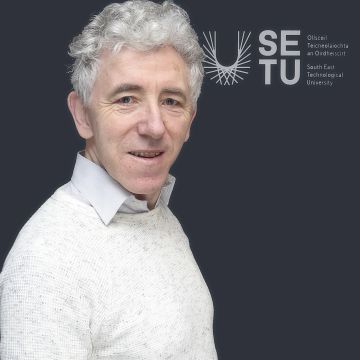Computing (Information Systems Processes) (full time)

Overview
The MSc in Computing (Information Systems Processes) programme is designed to enhance the participants’ ability to contribute to the digital transformation of organisations across a range of industries. A combination of technological, management, and organisational perspectives equip graduates with a range of transferable skills.
Digital systems are transforming every process, from manufacturing to financial services, from customer support to supplier relationships, from government departments to the United Nations. These transformations involve a complex interweaving of human and machine. This programme carefully balances technological, management and organisational perspectives to provide graduates with the insight, tools and skills they need to manage the complex realities of digital transformation.
Programme Delivery
The MSc in Computing (Information Systems Processes) is offered full-time over 1 year September to September. Students wishing to undertake the programme part-time may complete the programme over a longer period – classes are delivered during Monday to Friday 9 am to 5 pm. The MSc in Computing (Information Systems Processes) is a 90 credit programme. Students have the option to exit the Programme with a Postgraduate Diploma in Science in Computing (Information Systems Processes).
Year 1
| Semester 1 | Semester 2 |
|---|---|
| Business Process Analysis & Design | Ethics and e-Privacy |
| Information Systems Project Management (elective)* | Human Centred Systems |
| Socio-Technical Entrepreneurship (elective)* | Supply Chain Integration Technologies (elective)* |
| Agile Software Development (elective)* | Design Patterns (elective)* |
| Research Methods | User Experience and Design (elective)* |
| **Elective Modules – students will undertake 2 electives in semester 1 and 1 elective in semester 2 |
Year 2
| Semester 3 | Semester 4 |
|---|---|
| Research Project and Dissertation |
Entry Requirements
Applicants for the MSc in Computing (Information Systems Processes) should hold a minimum of an NFQ Level 8 Honours (2.2) degree in one of the following areas; Computing, Information Technology, Science, Engineering or Business.
Applicants who do not hold the standard qualifying criteria, but have relevant industry experience, may be considered for admission to the programme under the Institute’s Recognition of Prior Learning (RPL) process and subject to an interview.
Applicants whose primary language is not English must submit evidence of competency in English. Please see here.
How to Apply
Once our application portal opens, the link to apply will appear on the course page above.
Subject to satisfying the aforementioned entry criteria, applicants will be offered places on a first-come-first-served basis per their application submission.
Career Opportunities
Organisations worldwide are increasingly relying on information systems to assist in their work at an operational, tactical, and strategic level. There is a growing awareness that these systems are not simply technical in nature but are in fact socio-technical systems. 'Socio-technical' here refers to the need for an appreciation of both technical and human factors in the design, development and deployment of advanced computer-based systems.
There is an increasing recognition that the success of an investment in information systems requires that these human factors be addressed. As information systems become more pervasive their impact at a human level becomes more pronounced. This course equips students with the understanding of the issues that will prepare them for a career in information systems.
A graduate of this course will also be well equipped to pursue a research-oriented career in both Academia and Industry. The course is aimed both at new graduates and experienced professionals wish to obtain a deeper understanding and appreciation for the human factors associated with information systems in modern organisations.
Testimonial
“As a mature student, returning to study the MSc in Computing (Information Systems Processes) at SETU has been a most rewarding experience. The level of knowledge and support provided by lecturers was exceptional and the online facility to
access academic journals from home was vital to keeping a balance between study and family life. The course has broadened my thinking, improved my CV and opened interesting new doors for me. The future is bright!”
Patricia Williams, MSc in Computing (Information Systems Processes), Class of 2010
“Choosing a Masters in Computing (Information System Processes) from SETU was the best move towards achieving my career goals. The environment at SETU not only provides better education but brings out the best in every student. it was through the support of the lecturers and SETU staff that I never felt away from home.”
Neha Kumari MSc (ISP) Graduate 2018
This programme is open to international applicants, providing a supportive and dynamic learning environment. International applicants are encouraged to apply online through the international admissions portal. The application process typically requires academic transcripts, proof of English language proficiency, a personal statement, and relevant supporting documents. For detailed entry requirements and deadlines, visit our Study at SETU section of the website.
Course Leaders





